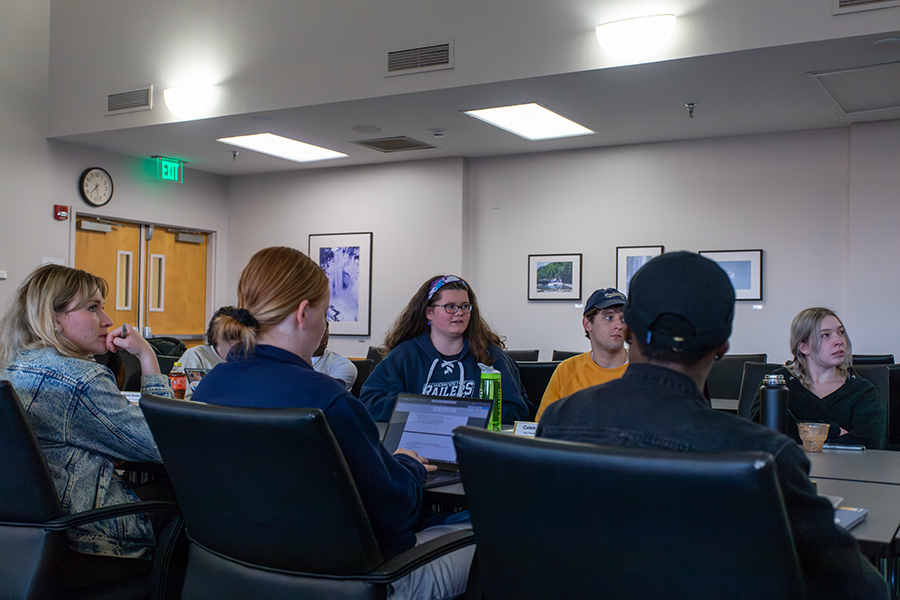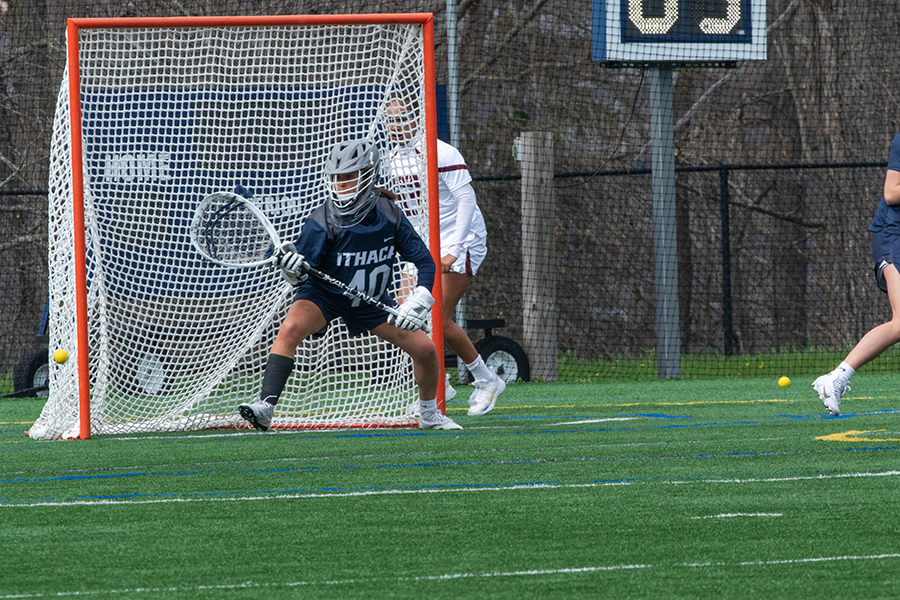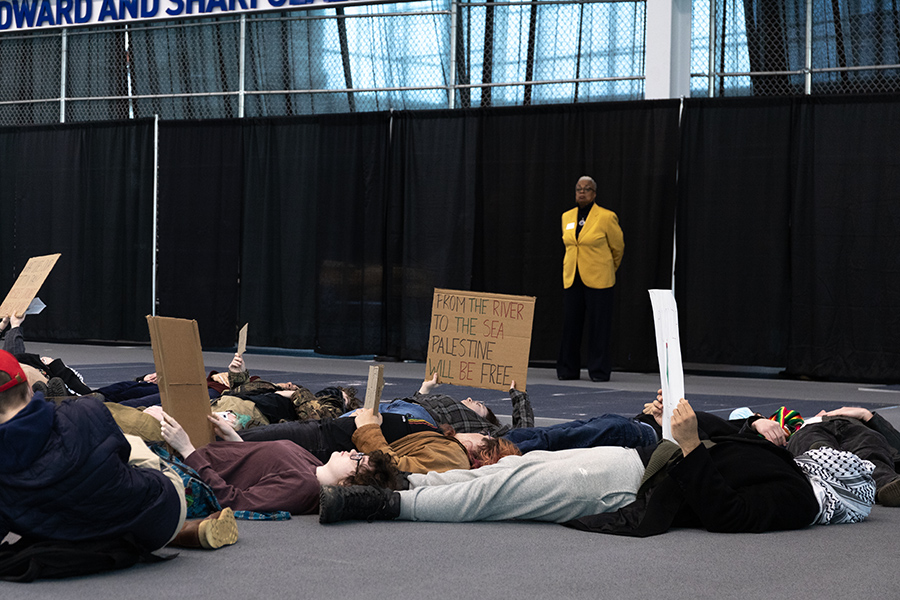As the Israeli-Palestinian conflict continues to cause controversy nationally and across the globe, a new student organization is forming on campus with hopes of giving voice to what some consider an underrepresented Palestinian point of view.
The group, Students for Justice in Palestine, is part of a national network that has gained momentum in the past couple of years after its founding at the University of California, Berkeley in 2001. Its goal is to put an end to a series of human rights abuses against Palestinians, a controversial claim in itself considering the identities of the victors and the victimized change depending on who is asked. The facts of the matter are tangled in emotion.
Junior Ava Carmeli, the founding president of what will be an Ithaca College chapter of SJP, said the large presence of pro-Israel groups on campus has compelled her to represent the other side of the argument.
Two years ago, this need took the form of a counterprotest to Yom Ha’atzmaut, an Israel Independence Day celebration sponsored by Student Alliance for Israel and Hillel Jewish Community. With the presence of SJP chapters expanding nationally, Carmeli decided to organize officially this semester.
“When I came to campus, I saw the very big pro-Israel organization and Hillel,” she said. “I remember freshman year there was a big Israeli independence parade and that just kind of surprised me and made me want to have another side on campus.”
But by “another side,” Carmeli said she doesn’t necessarily mean anti-Israeli or pro-Palestine, even though this is how the conflict is usually framed. She sees the dispute as an underrepresented human rights issue — one she plans to address by raising awareness on campus and beginning a
Boycott, Divestment and Sanction campaign against
Israeli goods that come from occupied territory. BDS campaigns are part of a national movement.
“A lot of campuses are trying to divest from companies like Sabra Hummus, which we have on our campus,” Carmeli said.
Michael Faber, Jewish chaplain and Hillel
director at the college, said student groups that have dealt with the Middle-Eastern conflict in the past have rarely resulted in a genuine dialogue.
“Frankly we’ve just had enough of those
unproductive kind of conversations on campuses all over North America,” he said. “They’ve produced nothing except anxiety, ill will and bad feeling.”
Faber said he hopes to see an agenda of coexistence develop on campus as a result of the new club.
It’s the same argument sophomore David Barken, copresident of SAFI, makes when discussing his frustrations with what he sees as a
nonacademic and biased attitude toward the conflict in some circles on campus.
“When it comes to the Israeli-Palestinian conflict, each side has their own facts and you have to represent that,” he said. “What [the Palestinian] side of the argument is doing might be just as harmful as what a lot of pro-Israel advocates do.”
Carmeli formed her opinion on the conflict based on her experiences living in Israel during the Second Intifada, a period of violence between Palestine and Israel. She said growing up under the Israeli education system and following U.S. media coverage of the conflict has made her realize how flexible “facts” can be.
“The Israeli education system is very one-sided,” she said. “They didn’t want you interacting with
Palestinians, and they didn’t want you to hear about their story. The history they give you in schools is a little skewed. Learning about what really happens opened my eyes to how different everything is from what I was taught.”
Her sentiments are the same as Barken’s, but come from a different side of the ideological border that has been a cause of violence and the subject of debate for decades — even far from the conflict zone.
The goals and objectives of SJP are still up in the air. Tonight founding members are meeting to finalize the primary objectives of the college’s chapter.
Senior Evan Lehrer, who also plans to play a role in the organization’s first steps, said he hopes it becomes a way to challenge the
dominant narratives surrounding the Israeli-Palestinian conflict.
“I hope SJP will put a crack in the campus political discussion,” he said. “We’re a very liberal campus. We have a very one-way rooted way of thinking. It’s not always bad, but it’s certainly not good.”







